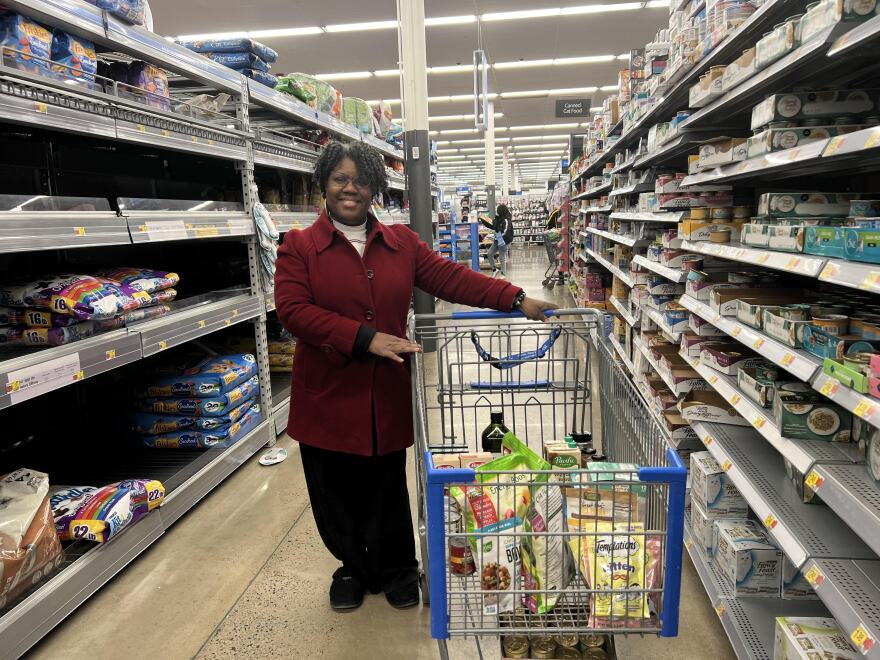In a frozen food aisle in a State College Walmart, Kristal Scott grabbed items out of the freezer case and loaded them into her almost-empty cart.
Scott said both her shopping and cooking habits have changed to get the most out of a dollar.
She said she's now buying food items in bulk and has a strict plan for when she walks into the store.
"For cooking-wise, one of my tips is to build my menu list upon each other," Scott said. "So when you cook something, the leftovers from that can then become part of your meal for your next meal."
Shannon Holliday scanned the cat food choices in the pet aisle.
Holliday said rising prices have made trips to the grocery store more stressful, and she isn't only worried about herself — she also has cats to take care of.
"If it comes down to it, I'm going to put my stuff back," Holliday said.
Holliday said she's on a diet that cuts out meat, eggs and carbs, so she hasn't had to pay the increased prices for eggs. But she said it's gotten harder to find vegetarian options at a decent price.
She's been trying to shop at cheaper places like Dollar Tree and taking advantage of sales and discounts whenever possible.
Holliday said higher prices have led to her "fine-tuning" her spending habits and taking extra time searching for the best deals.
"Another thing is literally trying to look at ounces and literally feeling the bag," Holliday said.
Mark Fulmer was also shopping in the pet-supply aisle when he shared his budgetary hurdles.
Fulmer said higher gas and food costs have had the biggest impact on his budget. To cut back, he started shopping at Walmart for food and clothes rather than name-brand stores.
He also said grocery shopping in general is pretty new to him, and the prices have been shocking.
"Everything's double now, and I'm freshly divorced, so I'm finding out what the price is because I never did it before," Fulmer said.
He said he's frustrated with American politicians because he doesn't think they're doing enough to help the average American.
"I think it's all corruption as far as these prices go. It's called greed and corruption. I don't have any faith in any politician right now," Fulmer said. "When I retire, I may move out of the country — Mexico's starting to look better."
Hillary Wething, a researcher and assistant professor at Penn State whose expertise is in how government public policy affects the labor market, said people are struggling now, but the economic strain should be temporary.
She said world events like the war in Ukraine and an outbreak of the Avian Flu are affecting prices.
"I think it's important to remember with those price increases that some of those will be short-lived," Wething said. "And so I think that we can sort of hold that optimism."
Wething said the Federal Reserve is working to stop rising inflation, but they also have to prevent the country from falling into a recession.
"The Fed can do what has been termed a soft landing — essentially, slowly and incrementally raising interest rates in an effort to bring down inflation, but without disrupting the labor market," Wething said. "That would be the best-case scenario, and that is our best bet at averting recession this year."
Wething said the Fed's actions and the fact that some price increases are temporary are promising signs the economy will get better for consumers.


